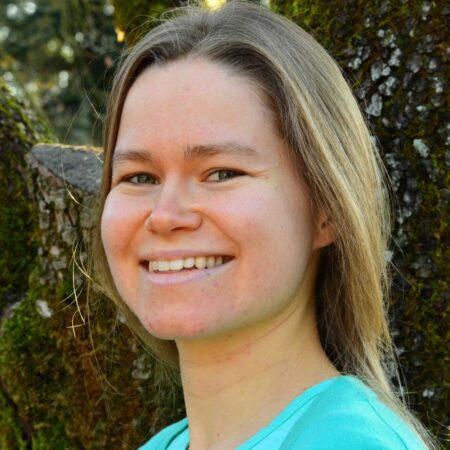Hannah Larson, PhD

Hannah Larson is an Assistant Professor of Mathematics at the University of California, Berkeley, and Clay Research Fellow.
Hannah received her PhD from Stanford University, where she was advised by Ravi Vakil. After graduation, Hannah spent a year as a Junior Fellow at Harvard. She has been awarded a 2024 Maryam Mirzakhani New Frontiers Prize.
Hannah’s research centers around the geometry of algebraic curves. Brill–Noether theory studies the maps of curves to projective spaces. While the Brill–Noether theory of general curves is well-understood, the story for special curves largely remains a mystery. Hannah is interested in studying these special curves. Her thesis, Brill–Noether theory over the Hurwitz space, studied the case of curves of fixed gonality and was awarded the Hertz Thesis Prize. Hannah’s other main research interest is intersection theory of moduli spaces of curves, particularly questions related to their tautological rings.
Larson is also an avid musician, playing cello and piano. In her free time, she enjoys swimming. She grew up in Eugene, Oregon.
Graduate Studies
Undergraduate Studies
Awards
2023, Hertz Thesis Prize, Fannie & John Hertz Foundation
Related News


